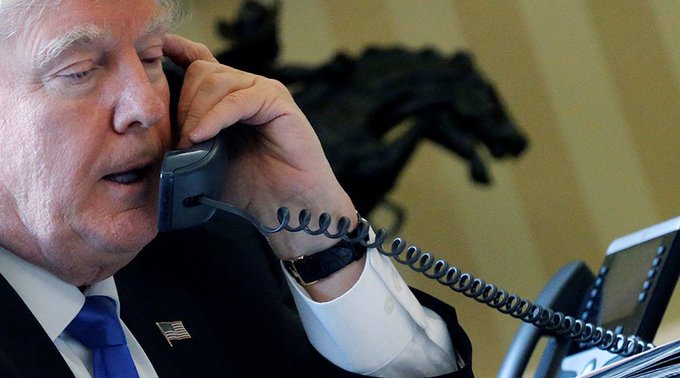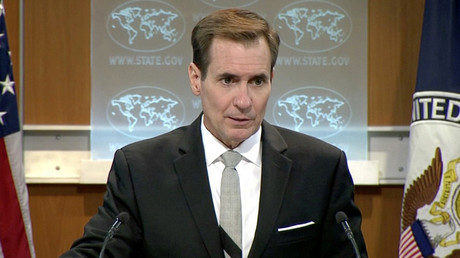‘No doubt’ US will try to meddle in 2018 Russian presidential election – foreign ministry
Moscow has long been used to Washington’s interference in its domestic affairs, Russian Deputy Foreign Minister Sergey Ryabkov said, adding that “there is no doubt” the US will try to meddle in the 2018 presidential election.
“We are used to American interference, we live with it. It’s the same as wire-tapping by US secret services. Someone who doesn’t assume it, is an absolutely naive person living on a different planet,” Sergey Ryabkov said in an interview with Chinese and Japanese media.
Answering reporters’ questions, the deputy foreign minister said that “of course there will be interference” from the US in Russia’s 2018 presidential election. “There is no doubt about that.”
Meanwhile, Moscow keeps “hearing accusations” that it attempted to affect last year’s presidential election in the US, not only through alleged hacking, but also through contacts with some US citizens. Evidence to support the allegations has not been presented, Ryabkov pointed out.
Not only the “hackers from Russia are mythical,” but some people who are accused of having “Russian contacts never participated in neither the Democrats’ nor Republicans’ election campaigns,” he said.
Despite the poor condition of relations between Moscow and Washington at the moment, there is still a chance “for certain improvement” under the Trump administration, Ryabkov told the media. Even with current tensions and difficulties, open conflict is unlikely, he said.
“I don’t think such confrontation is possible in the new environment. After all, the experience of the past years and decades, I hope, has taught both us and our colleagues in Washington to responsibly approach such issues.”
The two nations are not involved in “a new cold war” either, the foreign ministry official said. There are also no reasons to believe the 20th century Cold War is still ongoing, as “there is no confrontation of systems or ideologies.”
However, Washington still aims to change Russia’s political course, “by the use of cheap shots among other things,” Ryabkov said, adding that such US policies have led to a worsening in bilateral relations, but the current situation “is not equal to a state which threatens to evolve into a hot war.”
Having accused Russia of aiding Donald Trump’s election victory, the US intelligence community in the beginning of the year released a report titled, “Assessing Russian Activities and Intentions in Recent US Elections.” The unclassified version of this inquiry by the Office of the Director of National Intelligence (ODNI) did not provide any hard evidence, merely stating that the CIA and FBI had “high confidence” in its results. The NSA apparently had only “moderate confidence” in the findings.
While the US State Department has said American intelligence agencies are right not to disclose evidence, Moscow has slammed the ODNI report, saying it's "reminiscent of a witch hunt."
Russian President Vladimir Putin has on several occasions rebuffed the meddling claims, once noting that the US is not "a banana republic," for others to interfere with its people's choice and determine its political course.
Russian officials have also said that Moscow registers daily cyberattacks emanating from the territory of the United States. However, the Kremlin does not make ludicrous accusations that the attacks are orchestrated by the White House or US intelligence agencies, spokesman Dmitry Peskov has said.
In response to alleged Russian meddling in the US election, the Obama administration confiscated Russian diplomatic property in 2016 and expelled a number of Russian diplomats. In the following months, relations have only worsened, particularly after Washington approved new sanctions against Russia.
This week, the US embassy in Russia has announced it is suspending all "nonimmigrant visa operations” in Russia as of August 23. Visa operations will be resumed only in the main embassy building in Moscow on September 1. Commenting on the decision, Russian Foreign Minister Sergey Lavrov said Moscow would first examine the measures before making a decision on retaliatory steps. However, he believes that the visa decision was made to worsen citizens' attitude toward the Russian authorities, the senior diplomat said.




0 Comments:
Post a Comment
Subscribe to Post Comments [Atom]
<< Home